The Occupational Safety and Health Administration (OSHA) has issued interim enforcement guidance regarding respiratory protection, given the nationwide N95 shortage during the COVID- 19 pandemic.
Here are some important points to know about the OSHA enforcement guidelines for respiratory protection standards:
- The new guidelines apply to all industries (including the healthcare industry) and workplaces where the respiratory protection standard (29 CFR § 1910.134) applies.
- A worker may reuse or extend the use of their N95 as long as it maintains its structural and functional integrity.
- When allowing workers to reuse or extend the use of N95s, employers must ensure that users always perform a seal check and avoid masks that fail the seal check.
- The circumstances under which a disposable N95 is considered contaminated and not available for use should be documented in a written respiratory protection plan.
- Employees should be guided on the proper storage of N95s in between periods of reuse.
- If an employer can acquire proper N95s, CSHOs may allow the use of unused but expired N95s with a few conditions. These include informing the workers that they are using expired N95s and instructing them to inspect the respirators visually.
- Additional guidelines for healthcare providers state that expired N95s must not be used when performing surgical procedures on patients infected (or potentially infected) with COVID- 19. They also can’t be used to perform or attend procedures that may generate aerosols or where respiratory secretions may be poorly controlled.
The OSHA enforcement guidelines explicitly state that employers should prioritize the use of N95s by activity type. Besides, employers have been asked to reassess their systems to “identify any changes they can make to decrease the need for N95 respirators.”
In addition to these guidelines, employers in states with OSHA-approved state plans, such as Michigan, must also check their state’s regulations for updates. For other information related to employee benefits and insurance in Michigan, contact the experts at CIA Insurance and Risk Management. Our team will be happy to assist you.
Post provided by Sophia Najjar, President | Commercial Risk Management (CRM)
Comments are closed.




